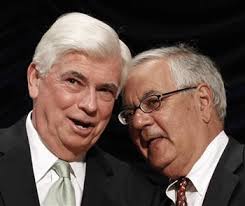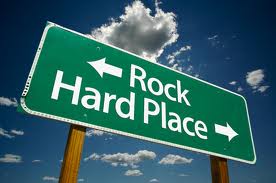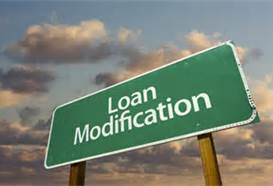FORECLOSURES DESTROY HOMES
Mortgage modification was intended to be easy to qualify for. Anyone willing to pay up to 31% of family income should be allowed to stave off foreclosure, even if the 31% paid does not cover the actual mortgage payment. But mortgage modification was narrowly construed, like underwriting to get a new loan, and millions of homes have been foreclosed. Many of those foreclosed homes fell into ruin. Foreclosures destroy homes.
***
How Housing’s New Players Spiraled Into Banks’ Old Mistakes
When the housing crisis sent the American economy to the brink of disaster in 2008, millions of people lost their homes. The banking system had failed homeowners and their families.
New investors soon swept in — mainly private equity firms — promising to do better.
But some of these new investors are repeating the mistakes that banks committed throughout the housing crisis, an investigation by The New York Times has found. They are quickly foreclosing on homeowners. They are losing families’ mortgage paperwork, much as the banks did. And many of these practices were enabled by the federal government, which sold tens of thousands of discounted mortgages to private equity investors, while making few demands on how they treated struggling homeowners.
The rising importance of private equity in the housing market is one of the most consequential transformations of the post-crisis American financial landscape. A home, after all, is the single largest investment most families will ever make.
Private equity firms, and the mortgage companies they own, face less oversight than the banks. And yet they are the cleanup crew for the worst housing crisis since the Great Depression.
Out of the more than a dozen private equity firms operating in the housing industry, The Times examined three of the largest to assess their impact on homeowners and renters.
Lone Star Funds’ mortgage operation has aggressively pushed thousands of homeowners toward foreclosure, according to housing data, interviews with borrowers and records obtained through a Freedom of Information request. Lone Star ranks among the country’s biggest buyers of delinquent mortgages from the government and banks.
Nationstar Mortgage, which leaped over big banks to become the fourth-largest collector of mortgage bills, repeatedly lost loan files and failed to detect errors in other documents. These mistakes, according to confidential regulatory records from a 2014 examination, put “borrowers at significant risk of servicing and foreclosure abuses.”
Unlike the banks, Nationstar wears many hats at once: mortgage bill collector, auction house for foreclosed homes and lender to new borrowers. By working every angle, and collecting fees at each step, the company faces potential conflicts of interest that enable it to make money on what is otherwise a costly foreclosure process.
…
Caliber Home Loans, Lone Star’s mortgage servicing subsidiary, said that “modifying a nonperforming loan for a borrower is almost always the most profitable option for a lender, and Caliber is incentivized to pursue that outcome.”
Yet Lone Star and Caliber have foreclosed on more than 14 percent of the 17,000 loans the firm picked up at auction from the Department of Housing and Urban Development in 2014, according to an analysis of loan filings that RealtyTrac performed for The Times. Caliber is now moving toward foreclosing on at least another 3,200.
Read more. http://www.nytimes.com/2016/06/27/business/dealbook/private-equity-housing-missteps.html
Click here to sign up for my email list.
James Robert Deal, Broker and Attorney
Broker with Agency One Realty LLC
WSBA # 8103, DOL # 39666
425-774-6611, 888-999-2022
425-776-8081 fax
James at James Deal dot com

















